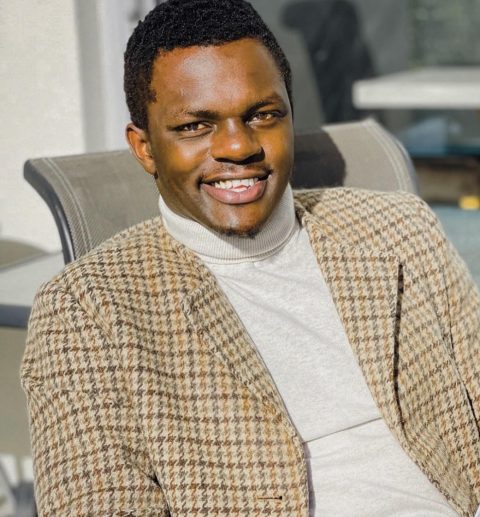African Leader
Are We Failing Our Youth?
Young people are the future of this country, and a nation that does not invest in the youth does not deserve its future. A thought-provoking opinion from Thabo Shingange, a former student representative council (SRC) president and Mandela-Rhodes scholar at the University of Pretoria. He currently serves as the national spokesperson of the South African Union of Students (SAUS) and is a member of the #COVID19 ministerial task team appointed by the minister of higher education.
Too much talk, too little action
Asked what is needed to influence public discourse around poverty alleviation, Shingange says: “South Africa is a country that likes to talk about everything. We’ve had enough talks about poverty and youth unemployment.

“We’ve held workshops, symposiums, colloquiums, imbizos, academic papers, policy propositions, and SONA debates – there’s enough literature, debate and knowledge on what the challenges are, and workable solutions that, for the most part, fall on deaf ears.”
Despite all these efforts, he says that at the centre of resolving these challenges is the absence of political will to resolve these systemic problems against the backdrop of rampant corruption, which steals away from developing the country further.
Student activist and SRC president at the University of Pretoria Thuto Mashile, says: “We have to encourage each other to listen to the solutions we present through consultative events, which are headed by young people.
“We need to convene youth from all walks of life, unite in coming with solutions to our problems right now because we are here and will be present in the near future,” she says.
Shingange says there needs to be a clear plan to drive economic growth and get rid of corruption.
“Corruption (both public and private sector) is the one vile element of our society that steals away from the young people who are the future of this country.”
He cites Unite 4 Mzansi, an initiative led by the South African Institute of Chartered Accountants and business leaders, which reported that South Africa lost R1.5-trillion in the last five years to corruption.
“This alone is telling of the many unresolved challenges that we’re facing as a country, including student debt, poverty, and unemployment,” says Shingange.
Mashile adds: “Our youth are frustrated, disappointed and desperate. Many people are qualified yet find themselves without employment, which defeats the purpose of education and acquiring qualifications.
“We need to take note that there’s a major skills gap in the country – this is evident in the townships where many lack the necessary skills to thrive.
“Through my position as SRC president, we are fighting poverty at a basic level and are dedicated to assisting vulnerable students with academic, financial and health-related difficulties,” she says.
“Nothing is inspiring about a country with a youth unemployment rate of above 70 per cent; it is debilitating and leaves thousands in a paralysed mind frame,” says Shingange.
“In short, no amount of public rhetoric from politicians will sway the mood of the country any differently, what is left now is to implement less talk, more action,” he says.
Entrepreneurs Needed
Despite his understandable fury at the system, Shingange has some positive words.
“South Africans should be equally looking to find alternative ways of surviving by tapping into entrepreneurial opportunities around them while simultaneously creating small-scale employment for others.
“While this may sound idealistic, given the right support and funding, which is available, such examples can go a long way in addressing issues of poverty and unemployment.”
Sharing the same sentiment, Mashile says: “As vague as this solution is, we need to begin creating our own employment through starting businesses with a vision to circulate income received among ourselves.
“We need to move away from training young people to be employees only and to consider going the entrepreneurial route. We need to teach them diverse ways to make their own money.
“Practical skills such as farming, artisanship, and any technology-related skill is crucial for the future.”
Shingange concurs: “in everything we do, we must all strive to live a life that can be remembered as helpful to humanity. From sharing skills, information, resources and opportunities, there are enough slices of cake for everyone if done right.”




